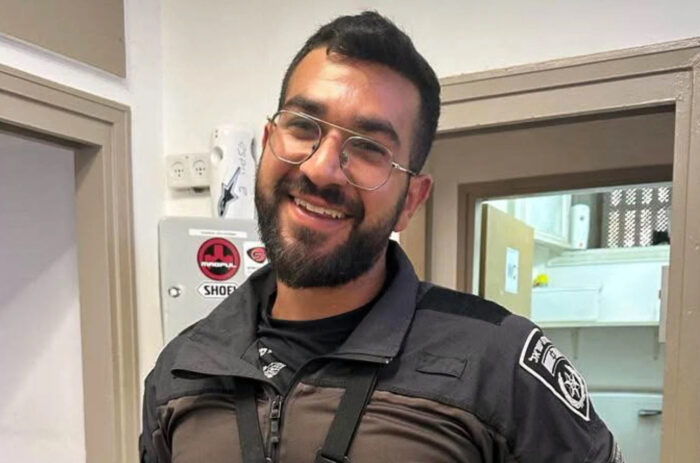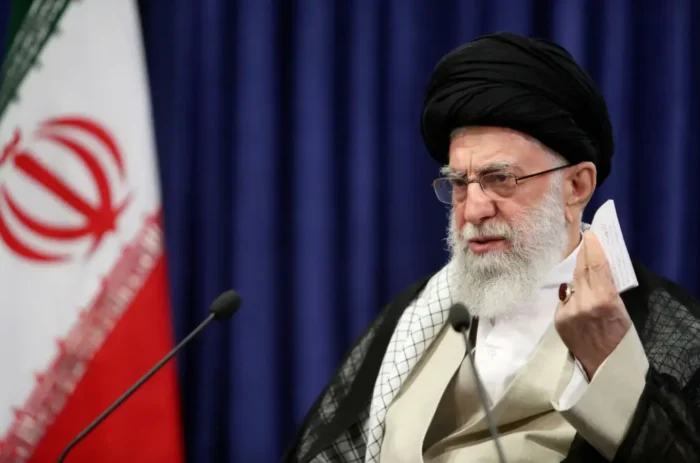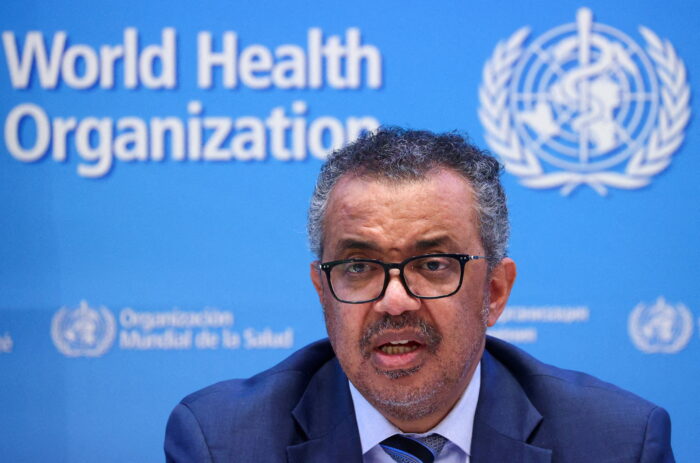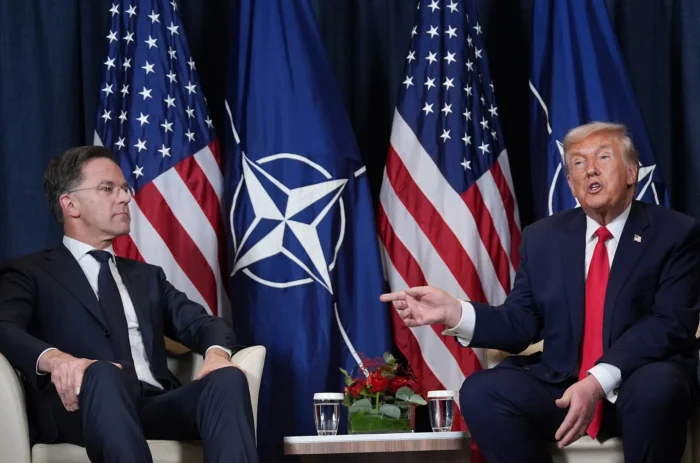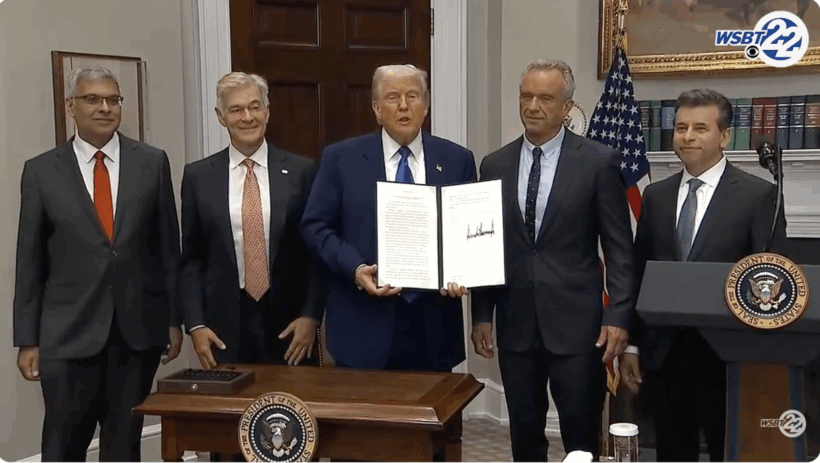
The president was joined at the press conference by (from left to right) National Institute of Health Director Dr. Jay Bhattacharya, Administrator for the Centers for Medicare and Medicaid Services Dr. Mehmet Oz, Secretary of Health and Human Services Robert F. Kennedy Jr. and FDA Commissioner Dr. Marty Makary.
redo Jump to...
print Print...
(UPI and Los Angeles Times/AP) — President Trump on Monday signed a[n] executive order setting a 30-day deadline for drugmakers to lower the cost of prescription drugs in the U.S. or face new limits on what the government will pay.
The order calls on the Health and Human Services Department, led by Robert F. Kennedy Jr., to broker new price[s] for drugs. If a deal is not reached, a new rule will kick in that will tie the price of what the U.S. pays for medications to lower prices paid by other countries [especially from the European Union].
“We’re going to equalize,” Trump said during a Monday morning news conference. “We’re all going to pay the same. We’re going to pay what Europe pays.”
“Starting today, the United States will no longer subsidize the healthcare of foreign countries, which is what we were doing,” Trump said during a press conference. “They pay a small fraction for the same drug we pay many many times more for.”
Trump added that he has “great respect” for pharmaceutical companies and feels that they were taken advantage of by other countries and the European Union.
“We will no longer tolerate profiteering and price gouging from ‘big pharma.’ But again it was really the countries that forced ‘big pharma’ to do things that, frankly, I’m not sure they felt comfortable doing,” he continued. “But they’ve gotten away with it, these countries. The European Union has been brutal.”
Trump said he expects drug prices to come down 59% to 90% in some cases. No details of the executive order were released, and it was not immediately clear how exactly the order would work.
It’s unclear what — if any — impact the Republican president’s executive order will have on millions of Americans who have private health insurance. The federal government has the most power to shape the price it pays for drugs covered by Medicare and Medicaid.
The federal government spends hundreds of billions of dollars on prescription drugs, injectables, transfusions and other medications every year through Medicare, which covers nearly 70 million older Americans. Medicaid, meanwhile, covers nearly 80 million poor and disabled people in the United States.
Ahead of the signing, the nation’s leading pharmaceutical lobby on Sunday pushed back against Trump’s plan, calling it a “bad deal” for American patients. Drugmakers have long argued that any threats to their profits could impact the research (R&D) they do to develop new drugs.
Trump’s…most favored nation approach to Medicare drug pricing [was blocked by a legal challenge from the pharmaceutical industry when] he tried to implement it during his first term. He signed a similar executive order in the final weeks of his first presidential term, calling for the U.S. to only pay a lower price that other countries pay for some drugs — injectables or cancer drugs given through infusions — administered in a doctor’s office.
…A court order blocked the rule from going into effect [and the] Biden administration [did not pursue it]. …
The president was joined at the press conference by National Institute of Health Director Dr. Jay Bhattacharya, Administrator for the Centers for Medicare and Medicaid Services Dr. Mehmet Oz, Secretary of Health and Human Services Robert F. Kennedy Jr. and FDA Commissioner Dr. Marty Makary.
“The pharmaceutical companies make most of their profits from America,” Trump said. “That’s not a good thing.”
“Our Country will finally be treated fairly, and our citizens Healthcare Costs will be reduced by numbers never even thought of before,” Trump said in another post ahead of Monday’s announcement.
The White House did not release an analysis of how much money his order would save or which drugs would be affected. The president has said it will save taxpayers big money and he wrote in one post that his plan could save “TRILLIONS OF DOLLARS.”
Dr. Oz, speaking on Monday, said that he and the agency’s other top leaders would be meeting with drug company executives over the next 30 days to offer new prices on drugs that are based off what other countries pay.
The Health and Human Services Department has the most authority to change the prices of drugs covered by Medicare and Medicaid because it can set regulations. Even still, the agency’s power to do so is limited. Congress just approved in 2022 a new law that allows Medicare to negotiate the price it pays for a handful of prescription drugs starting in 2026. Prior to the law, Medicare paid what the drug companies charged. Drug companies unsuccessfully sued over the implementation of the law.
The U.S. routinely outspends other nations on drug prices, compared with other large and wealthy countries, a problem that has long drawn the ire of both major political parties, but a lasting fix has never cleared Congress.
Trump came into his first term accusing pharmaceutical companies of “getting away with murder” and [accusing] other countries whose governments set drug prices [of] taking advantage of Americans.
On Sunday, Trump took aim at the industry again, writing that the “Pharmaceutical/Drug Companies would say, for years, that it was Research and Development Costs, and that all of these costs were, and would be, for no reason whatsoever, borne by the ‘suckers’ of America, ALONE.”
Referring to drug companies’ powerful lobbying efforts, he said that campaign contributions “can do wonders, but not with me, and not with the Republican Party.”“We are going to do the right thing,” he wrote.
Questions
1. Define equalizing, subsidize, R&D, profiteering and price gouging.
2. What executive order did President Trump sign on Monday?
3. What is the aim of the president’s executive order?
4. Specific details have not yet been released. By how much does the president expect some drug prices to be reduced?
5. The order will initially affect the drugs the government pays for – those for Medicare and Medicaid. What effect do you think Trump’s order will have on prescription drugs for people with private health insurance?
6. a) What is the population of the United States?
b) How many Americans are on Medicare? and on Medicaid?
c) Do you think equalizing drug prices with other countries could save U.S. taxpayers trillions? Explain your answer.
7. a) What group is opposed to the president’s executive order?
b) Ask a parent: why is this so?
8. Watch the videos under “Resources” below. Why do other countries, especially those with similar economies to ours (especially Europe and Canada), pay such a small percentage of the amount Americans pay for the same drugs?
Background
- The United States has less than five percent of the world’s population, yet funds roughly 75% of global pharmaceutical profits.
- Drug manufacturers discount their products to gain access to foreign markets and then subsidize those discounts through high prices charged in America—in essence, Americans are subsidizing drug-manufacturer profits and foreign health systems, despite drug manufacturers benefiting from generous research subsidies and enormous healthcare spending by the U.S. Government. (from the FactSheet on Lowering Drug Prices)
Read President Trump’s Executive Order on Prescription Drugs at whitehouse.gov.
Resources
President Trump, May 12, 2025:
Dr. Mehmet Oz, administrator for the Centers for Medicare and Medicaid Services (CMS), spoke at President Trump’s press conference:
Robert F. Kennedy Jr., May 12, 2025:
Daily “Answers” emails are provided for Daily News Articles, Tuesday’s World Events and Friday’s News Quiz.
